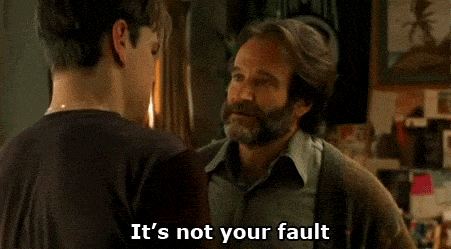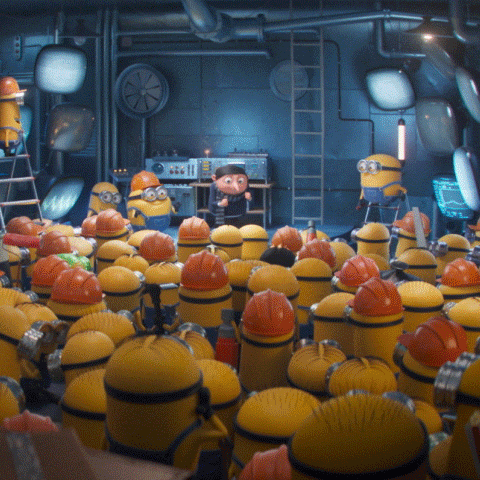Have you returned to the office and the vibe sucks? It’s all Abraham Maslow’s fault!
Oct 02, 2020 10:00 am
Hey !
What I’m reading: Do the Work: Overcome Resistance & Get Out of Your Own Way.
This is a very worthwhile read for anyone who is looking to undertake a big project. It talks about all the ways that we sabotage ourselves during this process and how to overcome them.
A quote I loved this week: "The pessimist complains about the wind. The optimist expects it to change. The leader adjusts the sails.” – John Maxwell
Over the past couple of months, I’ve had the privilege of working with several companies who are at varying stages of bringing their teams back into the office. There were a few commonalities shared by all these companies; and my hypothesis is that these commonalities probably apply to the majority of companies.
Each company:
- Found the transition to everyone working from home quite challenging
- Had feelings of overwhelm from managing the change, their team and trying to keep the doors open.
- Once they got past the shock, came to grips with their financial realities and figured out the basics of processes etc, they were still able to deliver projects
- Were really impressed with the dedication of their employees
- Acknowledge that their employees really enjoyed parts of working from home (no commuting, ability to go for a walk, less distractions etc)
- Longed for the day when they could just get everyone back into the office, hoping it would reignite the spark and start to rebuild some momentum
- They have returned to the office, and it’s bloody miserable!

We can all blame Abraham Maslow and his Hierarchy of Needs!
Many of you would have seen this in a high school Business Studies class, remembered it for the exam and then not given it another thought… but there is a reason that it is still referred to almost 80 years after Abraham thought “how can I use a triangle to describe the complexities of human beings?”
In a sentence, Maslow’s thesis was that every human being starts with their focus, attention and motivation at the bottom of the pyramid; and they can’t move up to the next level, until they satisfy all the needs of the level they are on. It’s like a really long, intense game of Donkey Kong.

In short, here’s what has happened…
In 2019, most individuals were lucky enough to take Physiological and Safety needs as a given. This freed them up to focus on their Esteem and Self-Actualisation needs, which is where things like creativity, innovation, ambition and doing the best job possible live.
It also allowed companies to tap into their need for Love & Belonging, and we all had these wonderful company cultures, and everyone loved coming to work.

Then… someone started buying ALL the toilet paper, people were put on Job Keeper and everyone’s focus immediately dropped back down a couple of levels.
When this happened, many companies and leaders understandably thought, if I can just get everyone back together in the office (tapping into Love & Belonging), then everything will go back to the way it was. But there are several problems with this*** … specifically, we’ve not done enough to address people’s Physiological and Safety needs.
So how can we do this?
1. Re-establish the company vision and strategy – your old strategy is probably irrelevant now… and if it is still relevant, people will likely have forgotten it. A clear vision, provides a sense of corporate safety. People think, "Thank God! The boss has got this. We've got a plan. WE are going to be ok"
2. SIMPLIFY – give the company, teams and individuals a single clear focus. This allows them to block out the noise, even in the midst of their other issues.
3. Rebuild individual safety by talking to your employees, understanding their individual situations, and to the greatest extent possible, reassure them that their job is safe.
4. Invest in Wellbeing – you may have heard that the next big crisis we will face is a Mental Health crisis. Make sure you have an EAP service. Speak openly about Mental Health issues. And let people know that they will be supported if they need help.
5. Give people a specific reason to come back into the office – having everyone back together is not enough. Social events, valuable meetings, inspiration sessions, stupid hat days… anything that will make someone think “that’s worth commuting for”.
Thankfully, Maslow also shows us a few things that we can potentially put on hold (for now) to free up a bit of time and mental/emotional bandwidth to deal with the months ahead:
1. Performance Reviews – while it is still very important to sit down with individuals in your team to talk about 2020 and their aspirations, for many companies, it’s probably less important to collect extensive 360 feedback and create detailed career plans and KPIs.
2. BIG HR Projects – redesigning your on-boarding process, developing or rolling out large Diversity & Inclusion programs, big staff training programs and things like these, while ultimately still very important, can potentially be put on hold for a while. These are the things that tend to satisfy Self-Actualisation needs. (Note: if you do decide to do this, make sure you communicate this to your team, explain the reasons why and let them know when you hope to pick these back up again).
Now is a time for leaders to show up and lead their people. Of course, your clients need attention, you've got to get work out the door to pay the bills, and you've got to manage the operational stuff. But you will get back on track faster, by ensuring that all your people level up as quickly as possible so that you can focus on rebuilding together.

The keys here are… share the vision, simplify things and create clarity, build safety, and show empathy to individuals.
Until next week work nerds… look after each other.
Clint
*** People have gone through a traumatic experience (some psychologists have likened this to someone experiencing a family death), the economic landscape has radically changed, there have been giant leaps in people’s expectations of the workplace (particularly around workplace flexibility and remote working)
